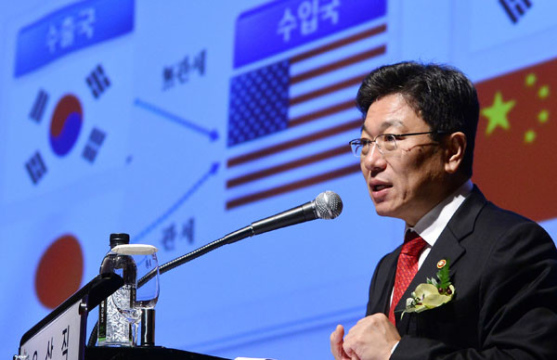
Mexican vs Chinese Factories
With the rising cost of wages in China, manufacturers are increasingly considering Mexico an attractive location to ‘re-shore’ production.
by Sebastian Maag Pardo and Margaret Myers
After years of what many have considered to be strained relations between China and Mexico, the two countries are slowly warming to one another. A series of deals and agreements—some of them with hefty price tags—have materialized in recent months in a number of potentially growth-promoting sectors.
China has made considerable inroads across Latin America and the Caribbean over the past two decades, but its relations with Mexico have generally been described as luke-warm at best. In addition to some diplomatic challenges, imbalanced trade has been a sticking point for Mexico’s manufacturing sector, which faces competition from China in both domestic and foreign markets. As of 2015, Mexico exported around $6 billion to China, but imported over $60 billion from the Asian nation.
A series of failed projects have also hindered effective relationship-building in recent years. The 2014 termination of the Querétaro high-speed rail contract, which was awarded to a consortium of Chinese and Mexican companies, prompted considerable backlash on the part of Chinese “netizens.” A failed Chinese retail project in Cancún also affected business ties between the two countries.
The past year or two would appear to have breathed new life into the China-Mexico relationship, however.
Though established in 2014, the IFC’s China-Mexico Fund made its first investment in Mexico— a $140 million commitment to US-backed Citla Energy—just last year. The $1.2 billion fund also plans to target Mexico’s manufacturing, agribusiness, services, and banking sectors.
In December 2016, China National Offshore Oil Company (CNOOC) won two deep water oil blocks in the Gulf of Mexico’s Perdido Fold Belt, with bids that far surpassed the required minimum. The auction was deemed a success for Mexico’s energy sector, having attracted a total of $475 million in initial exploration commitments. It was also a bold step for CNOOC, which will solely operate Perdido blocks 1 and 4.
Chinese telecommunications firm Huawei has also been increasingly active in the country’s communications sector. Huawei is a critical partner in Red Compartida, a Mexican government initiative to build an open-access wholesale wireless network that will cover 92.2% of the country’s population. The Atlán Consortium won the bid for the 20-year project in November of 2016, and selected Huawei and Nokia as strategic partners in equipment and project development cooperation. Other Chinese actors have also taken interest in the initiative—the IFC’s China-Mexico Fund is the second largest shareholder and China Telecom has explored a possible role.
At least some of this progress can be linked to the Peña Nieto administration’s efforts to reduce over-dependence on the US, as evidenced by Mexico’s efforts to upgrade its free trade pact with the European Union and the country’s involvement in the Pacific Alliance, which aims to strengthen integration among member nations and with Asia.
Many analysts have pointed to the election of US President Donald Trump as also prompting Mexico’s interest in diversifying its partnerships. Recent efforts to expand soy trade with Brazil and Argentina have been linked to burgeoning concerns over possible trade frictions with the US. Although talks have been ongoing for years, Mexico, Brazil and Argentina have stepped up efforts to expand Mexico-MERCOSUR trade in recent months.
A recently announced $230 million joint venture between Carlos Slim’s Giant Motors and China’s JAC Motors has been linked to Trump’s “America First” policy. JAC and Giant Motors will evidently aim to sell cars in Mexico and elsewhere in Latin America to potentially counter the effects of deteriorating US-Mexico trade relations.
Whether China-Mexico relations continue on the up-and-up largely remains to be seen. Much depends on the Trump administration’s efforts to either withdraw from or renegotiate the North American Free Trade Agreement (NAFTA). The administration continues to send mixed signals on the matter. Even a partial dissolution of NAFTA could negatively affect some Chinese investments in Mexico, but might also generate new opportunities for cross-Pacific partnership.
Whatever the reasons for growing ties, a stronger China-Mexico relationship will no doubt benefit Mexico in the coming years, assuming that Chinese resources are directed toward sustainable initiatives and growth-promoting sectors, and efforts are taken to address long-standing trade discrepancies.
Sebastian Maag Pardo is an intern at the Inter-American Dialogue. He is currently studying at Hong Kong University. Margaret Myers directs the Dialogue’s Latin America and the World program.
With the rising cost of wages in China, manufacturers are increasingly considering Mexico an attractive location to ‘re-shore’ production.
South Korea’s entry into the TPP will promote stronger cooperation between South Korea and Latin America.
The Fernández administration’s refusal to comply with a US court order to pay holdout hedge funds has once again landed Argentina in default.

